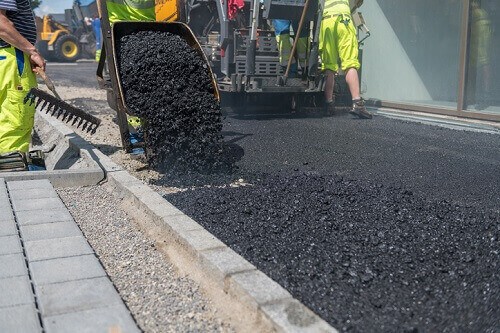When it comes to cost and environmental friendliness, bituminous pavements are unbeatable. They are fast to construct and easy to repair, but they are also 100% recyclable, reducing damage to your pavement. This article will discuss the advantages of bituminous pavements and why you should consider them for your next construction project. Also, you’ll discover their other benefits, including their cost-effectiveness.
Table of Contents
Bitumen pavements are fast to construct
Asphalt or bitumen pavements are popular for highways and other public infrastructures. This type of pavement is fast to construct and is an excellent alternative for constructing tunnels or other roadways that experience low air quality during the day. Unlike concrete, asphalt pavements don’t take long to build and are usually relatively affordable. Bitumen pavements are fast to construct, making them an excellent choice for smaller projects or repairs of potholes and pavement cracks. Other types of asphalt include cut-back and mastic asphalt, and these are dense, waterproofing mixes made of asphalt cement and stone filler mixed at high temperatures.
Because bitumen is a flexible material, it is easy to customize asphalt layers for varying road conditions. For instance, asphalt can be thin in the lower layers of suburban pavements. And asphalt pavements can be designed with special traffic features and safety features. This versatility makes them ideal for changing demands. While asphalt pavements are fast to construct, they are incredibly durable. They can also withstand high temperatures and high loads, making them an excellent choice for roads with heavy traffic.
Asphalt pavements are fast to construct. Because they don’t require a cure period and extensive site preparation, they can be constructed overnight, making them a quicker option for urban areas. These roads can also be milled and overlaid during off-peak hours. They are an excellent option for urban areas as they are easier to maintain than other pavements. They can be built quickly, reducing road congestion and traffic delays.
They are 100% recyclable
Asphalt and bitumen pavements are 100% recyclable. The HMA industry has been recycling on a large scale for nearly two decades. Bitumen pavements made from recycled asphalt have the same mixed ingredients as newly mixed asphalt.
Recycling asphalt has excellent environmental benefits. Asphalt pavements can be cold recycled in place or at a central plant, and the recycled asphalt is reused to create new asphalt concrete mixes. It means 100% of the asphalt cement/binder used in asphalt pavements is recovered. It also helps keep our planet healthy.
They reduce damage to the pavement
The use of seal coating on asphalt pavements is essential to prevent water from seeping through cracks and causing damage to the pavement. Sealcoat is best applied on the surface every two to three years during warmer weather. Regular seal coating prevents damage from larger cracks and helps the pavement last longer. Here are some tips for maintaining the beauty and durability of your asphalt pavement.
Asphalt pavements offer several benefits to the owner. The smoother, quieter surface is more comfortable for drivers and reduces wear and tear on the pavement. It also improves fuel efficiency, which cuts down on vehicle wear. Moreover, it reduces noise from the tires, making the ride more enjoyable for drivers and passengers alike. In addition, asphalt pavement also reduces the risk of dangerous pavement blowups. You may also consult globalroadtechnology.com/bitumen-stabilized-pavements/ to learn more about the pavement.
They are economical
Most roads use bitumen as their primary paving material. The material’s melting point is favorable for surface dressing and wears resistance, but it should not be too high to melt during laying pavement. Asphalt pavements are more environmentally friendly than concrete, reducing greenhouse gas emissions. However, it does not require extensive site preparation. It means that asphalt pavements can be installed one lane at a time, minimizing the amount of traffic disruption and reducing congestion. Additionally, asphalt pavements can be completed in one day or overnight, allowing residents and business owners to continue using the roads immediately.
A significant number of road users and highway agencies have made investments in preparing for the challenges posed by climate change. However, the impact on pavement performance remains unquantified, which means that more research must be conducted better to understand the economic implications of climate change adaptation. Among these changes is upgrading asphalt binders to be more resistant to high temperatures. Furthermore, a higher level of quality in bitumen also leads to a lower cost per mile.

